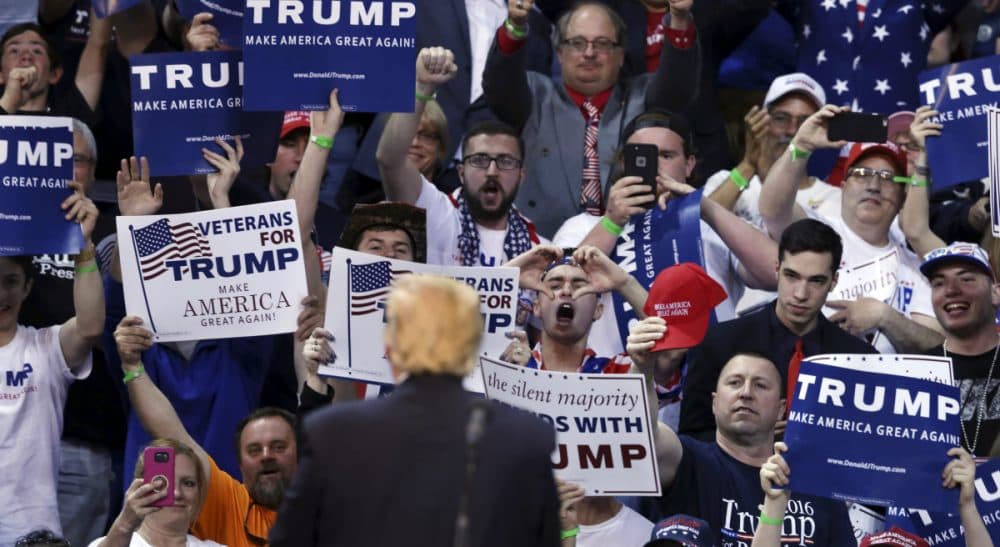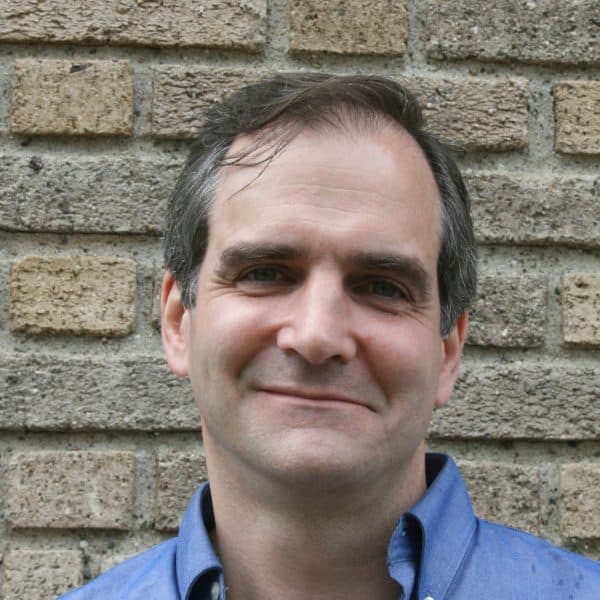Advertisement
Donald Trump And The Fluidity Of Racism

White people have always been afraid.
This is the fact that enabled Donald Trump’s rise to the Republican nomination. It is the simple truth that has eluded the people who are shocked by his popularity, by the appeal of his anti-immigrant tirades, by the fact that a candidate for the presidency would order black Americans removed from a campaign event. Trump speaks to the oldest strain in our national psyche: the settler’s fear of the next Indian attack, the plantation owner’s fear of a slave revolt. That fear has mutated, but it’s still there. Suburban gated communities are the descendants of fortified colonial settlements.
Trump supporters are afraid of finding themselves living in a country that’s no longer white. They fear their country drowning in a nonexistent flood of Mexican drug dealers and Muslim terrorists masquerading as Syrian refugees.
Suburban gated communities are the descendants of fortified colonial settlements.
The sad truth is that the people who consider themselves the heirs of the New World have always been petrified by change. In 1751 a Pennsylvania businessman and politician wrote to an associate expressing his anxiety about German immigrants in tones eerily reminiscent of the anti-Hispanic hysteria of today:
Those who come hither are generally of the most ignorant Stupid Sort of their own Nation… unless the stream of their importation could be turned from this to other colonies, as you very judiciously propose, they will soon so out number us, that all the advantages we have will not in My Opinion be able to preserve our language, and even our Government will become precarious. Why should Pennsylvania, founded by the English, become a Colony of Aliens, who will shortly be so numerous as to Germanize us instead of our Anglifying them, and will never adopt our Language or Customs, any more than they can acquire our Complexion.
Which leads me to add one Remark: That the Number of purely white People in the World is proportionably very small… in Europe, the Spaniards, Italians, French, Russians and Swedes, are generally of what we call a swarthy Complexion; as are the Germans also.
The author of that letter was Benjamin Franklin.
And yet 150 years later being German carried no taint on this continent. It did not mark someone as distinctive in undesirable ways. Germans had assimilated, as immigrants always do. German names had become familiar rather than strange. “White” America did not become more tolerant. Germans had become “white,” and “white” America fixed its intolerance elsewhere.
No one is more acutely aware of the fluidity of whiteness than recent immigrants themselves. In her memoir, "A Cup of Water Under My Bed," writer Daisy Hernandez recalls how her Colombian immigrant mother and aunts stressed that for her and the other Latinos in Union City, New Jersey, their imperative was to “become white, like the Italians.” She recalls the advice her mother and aunts gave her on looking for a husband: “A man with a college degree is best, but choose white over black, because no one sees the diploma in the street. Forget Caribbean men ... if they are not black, their grandmothers might be. Forget Central Americans: if they are not indios, their grandmothers might be.”
Advertisement
Trump supporters’ fear of a changing America would be laughable if it weren’t so hateful and sad: they are afraid of a future that has already happened.
It’s easy for Irish- and Italian-Americans to forget that at one time they were not considered white. In antebellum America, Irish Catholic immigrants were often referred to as “n------ turned inside out;” African-Americans were called “smoked Irish.” The influx of Italians and Jews during the early 20th century so alarmed WASP America during the 1920s that Congress passed laws restricting immigration from Eastern and Southern Europe.
There is a bitter irony in the fact that the Trump supporter who punched a black protester at one of the candidate’s rallies is named John McGraw, which makes him undoubtedly Irish-American. There’s also a pathetic fittingness to Trump’s endorsement by the Italian-American actor Scott Baio, who is perhaps best known for his role on "Happy Days," an anodyne 1970s sitcom set in 1950s Milwaukee intended to help middle America forget the years of Vietnam and the Civil Rights Movement had ever happened.
Trump supporters’ fear of a changing America would be laughable if it weren’t so hateful and sad: they are afraid of a future that has already happened.
